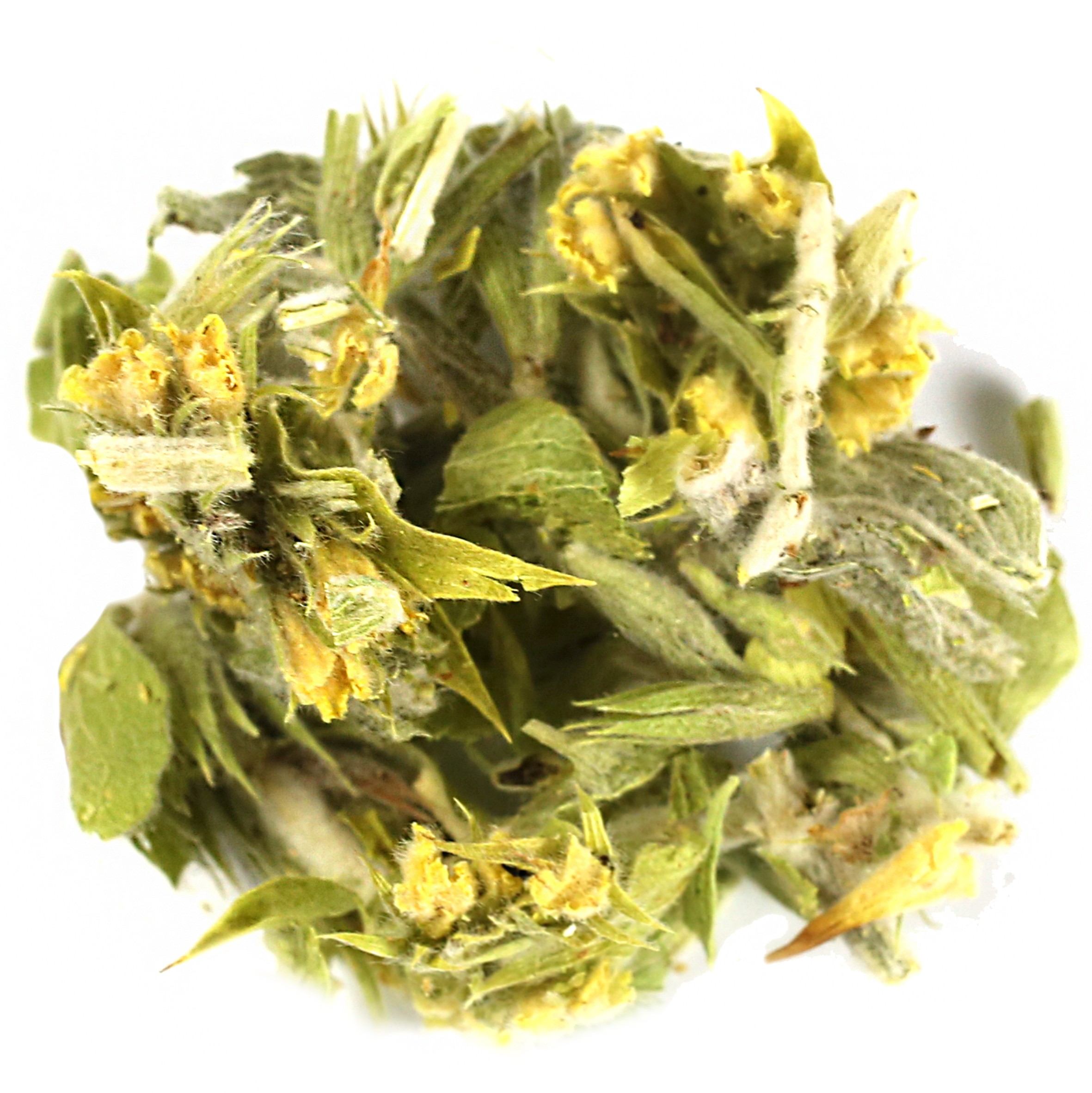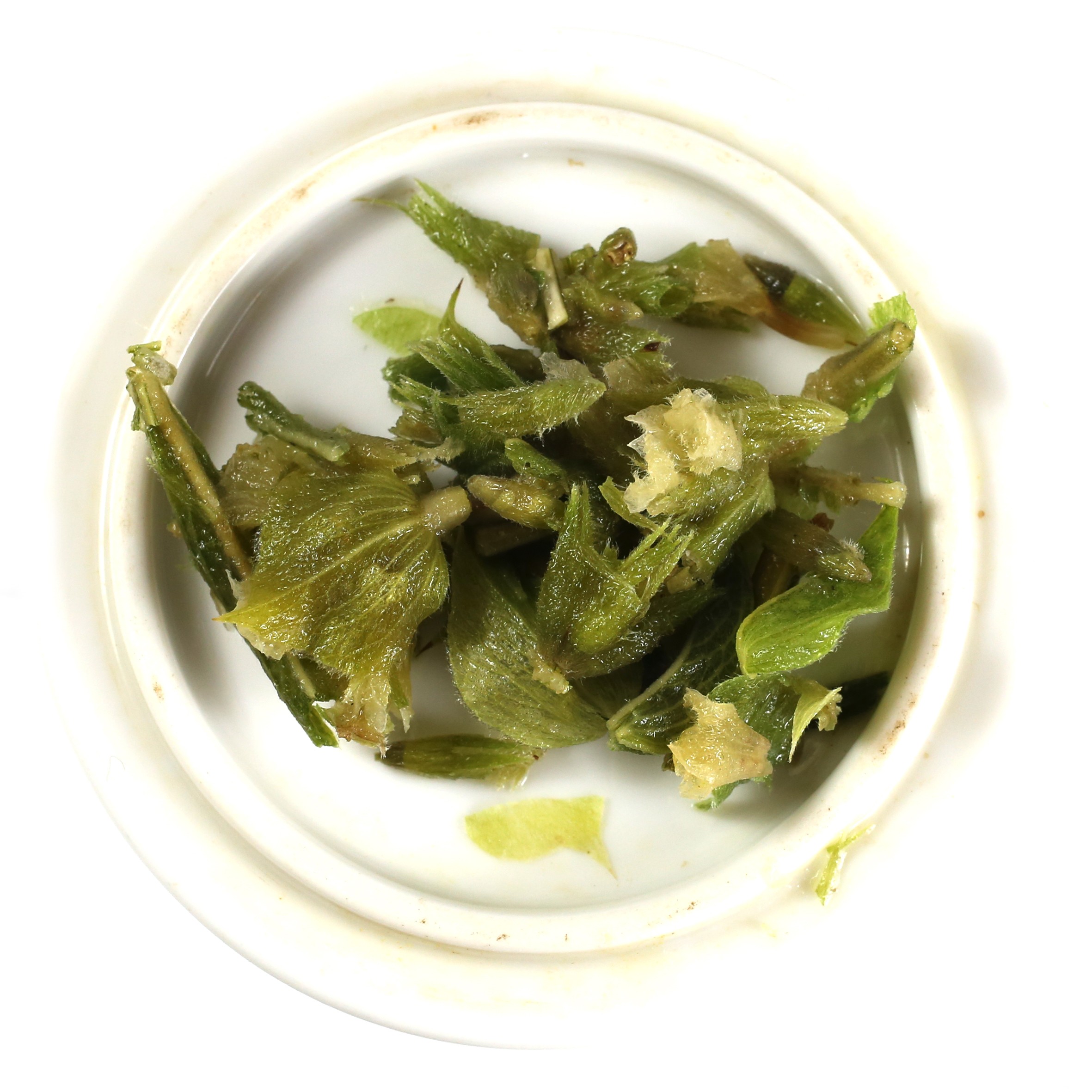Mountain Tea Sideritis Scardica Olympus Tea
Herbal Tea Brewing Guide

1 Teaspoon
Add 1 teaspoon per person and one for the pot.

95⁰c - 100⁰c
Boil using fresh water, at a temperature of 95⁰ - 100⁰c.

8 - 10 Mins
Steep for 8-10 minutes, depending on personal preference.
About Product
-
Product Description
‘Sideritis Scardica’ is a herb which is prevalent across much of Northern Greece, and beyond. Most famously, it thrives on the mountainside of almighty Olympus; home to the twelve Olympian Gods of Ancient Greece, and where the name of this tea originates from. It was once highly regarded by the world-renowned physician, Hippocrates, and remains immensely popular throughout many Mediterranean and Balkan Countries.
Its flavours are notably herbaceous, but it likewise boasts slight floral and even fruity undertones with every further sip. Known for its incredible health benefits, Mountain Tea Sideritis Scardica Olympus Tea is the perfect choice for anyone looking to be adventurous.
It has also been proven to help improve digestive systems health, as well as lowering blood pressure, and even providing anti-anxiety and antidepressant qualities!
The Magic of Greece
The Greeks are great lovers of this delicious beverage, with at least 17 different species of the Sideritis plant found within the country. However, in total, they are an estimated 150 different types of the Sideritis plant, including ‘Sideritis raeseri’, ‘Sideritis euboea’, ‘Sideritis montana’, and ‘Sideritis syriaca’.
It is also grown and consumed in Albania, Bulgaria, Macedonia, and Turkey, as well as a number of other central and eastern European countries. Bulgaria, in particular, shares a fascinating history with ‘Olympus Tea’.
Such is its popularity that to this day, the Bulgarian Government have protected Sideritis Scardica by law! In fact, only but a few producers are permitted to harvest it, and even fewer still to cultivate it.
While Bulgaria was under the ‘Iron Curtain’ (1946-1990) during the Cold War (1945-1991), almost all knowledge of this herb was blocked from the public domain, with only members of the Communist Party permitted to consume it in tea-form!
Modern-day Bulgarians now consume ‘Mountain Tea’ on a regular basis, with it said to be “much akin to viagra” (need we say more?)
In Ancient Greece, ‘Sideritis’ was translated to mean “he who is made of or has iron”. This is thought to be in reference to Sideritis Scardica’s usage during battle, when it was placed on wounds inflicted by iron weapons. However, there is much mystery surrounding this, with many historians contesting this theory.
Today, this beverage is known by a variety of different names. These include “Mountain Tea”, “Olympus Tea”, “Shepherd’s Tea”, and even “Ironwort”. Sideritis Scardica, in particular, is the most widely researched.
While the Ancient Greeks, including Hippocrates and Pedanius Dioscorides, studied the Sideritis Scardica plant for its medicinal properties in tea-form, it was not until the 20th Century that further research was conducted to find out this brew’s true potential.
It is now known that Mountain Tea Sideritis Scardica Olympus Tea can provide incredible health benefits. To find out more information, please see our ‘Health Benefits’ section below.
Useful Information
Type of Tea: Herbal Tea.
Origin: Greece.
Ingredients: The Sideritis Scardica plant.
Brewing Instructions: The Kent and Sussex Tea and Coffee Company recommend using 1 teaspoon of the leaf. However, if you prefer a stronger cup, consider adding 1½ teaspoons. Brew using freshly boiled water, and infuse for 5 to 10 minutes.
How to Serve: The addition of honey or lemon make delicious accompaniments with our Mountain Tea Sideritis Scardica Olympus Tea. Alternatively, this beverage is best served as it is.
Tasting Notes: Mountain Tea Sideritis Scardica Olympus Tea consists of delicate citrus aromas, and a delightful combination of earthy and sweet flavours. It is considered an especially refreshing beverage, and also offers smooth, floral undertones that linger on your palate long after you have drained your cup.
Colour in Cup: Golden-yellow liquor, light in tone.
Benefits of Mountain Tea Sideritis Scardica Olympus Tea
A recent study has indicated that Mountain Tea Sideritis Scardica Olympus Tea is “as potent as Green Tea at inducing cellular antioxidant defenses and preventing oxidative stress”, according to a published report in the Journal of the Science of Food and Agriculture.
The frequent consumption of this beverage is also thought to potentially combat the early signs of Alzheimer’s disease, although further research is required before any official confirmation can be made.
-
Delivery Information
We offer reliable delivery services through Royal Mail to ensure that your orders reach you on time.
Here are the main points you should be aware of:
- Standard UK Delivery: £3.95 excluding delivery charge.
- Delivery Times: Orders are processed and dispatched within 2-5 working days but they may take longer during busy times. It is worth noting that all our orders are packed by hand in order to maintain the quality.
- Free Delivery: We are delighted to provide free shipping for UK orders over £35*. Moreover, customers from Europe can enjoy free shipping for any purchase above €75*. Furthermore, we offer free delivery in the USA for all purchases exceeding $125*. Please note terms and conditions may apply.
- Tracking: When your package is sent you will receive a tracking number via email so as to keep tabs of its progress.
International Shipping
We do ship worldwide meaning our products can be accessed by anyone around the world.
Here are some important details:
- Delivery Times: International deliveries vary based on destination, generally taking between 7-14 working days.
- Shipping Costs: International shipping costs are calculated at checkout based on your location and weight of your order. View full delivery charges for your location.
- Customs and Import Duties: Remember customs or import duties may exist depending on regulations in your country; these charges are borne by the customer.
Returns Policy
Your satisfaction is our top priority, however if for any reasons you’re not completely happy with your purchase, simply follow our returns procedure:
- Eligibility: Items returned within 30 days of receipt must remain unopened and in their original condition.
- Process: In order to return an item contact our customer service department using your unique order number after which detailed instructions will be given concerning returning them back to us securely.
- Refunds: Our aim is to refund you within 5-7 working days upon successful reception of returned goods. The refund amount will be credited to your original payment method.
For any other Enquiries or help please contact our Customer Support Team always at your service.
-
Product Reviews

 Loose Leaf Tea
Loose Leaf Tea Pyramids
Pyramids Tea Bags
Tea Bags Africa
Africa Assam
Assam Ceylon
Ceylon Chinese
Chinese Darjeeling
Darjeeling European
European Indian
Indian Japan
Japan Nepal
Nepal South East Asia
South East Asia Ayurveda Tea
Ayurveda Tea Black Tea
Black Tea Chai Tea
Chai Tea Flowering Tea
Flowering Tea Fruit Tisanes
Fruit Tisanes Green Tea
Green Tea Herbal Tea
Herbal Tea Matcha Tea
Matcha Tea Oolong Tea
Oolong Tea Organic Tea
Organic Tea Pu erh Tea
Pu erh Tea Rooibos Tea
Rooibos Tea White Tea
White Tea Asian Coffee
Asian Coffee Caribbean Coffee
Caribbean Coffee Central American Coffee
Central American Coffee South American Coffee
South American Coffee Coffee Blends
Coffee Blends Decaffeinated Coffee
Decaffeinated Coffee Espresso Coffee
Espresso Coffee Ethically Sourced Coffee
Ethically Sourced Coffee Flavoured Coffee
Flavoured Coffee Organic Coffee
Organic Coffee Single Origin Coffee
Single Origin Coffee Chocolate 1
Chocolate 1 Chocolate 2
Chocolate 2 Chocolate 3
Chocolate 3 Chocolate 4
Chocolate 4 Chocolate 5
Chocolate 5 Chocolate 6
Chocolate 6 Chocolate 7
Chocolate 7 Chocolate 8
Chocolate 8 Chocolate 9
Chocolate 9 Loose Tea Filters
Loose Tea Filters Tea Accessories
Tea Accessories Tea Bricks
Tea Bricks Tea Caddies
Tea Caddies Tea Caddy Spoons
Tea Caddy Spoons Tea Gift Ideas
Tea Gift Ideas Tea Infusers
Tea Infusers Tea Strainers
Tea Strainers




